Marine Safety SA April 2025 Newsletter
- Stay Afloat with us
- Get prepared for your Easter long weekend boating adventure
- Offshore Superboat Championships
- South East Field Day (Lucindale)
- Maintaining your vessel
- Keeping safe in autumn and winter
- Check, clean, dry - protect our abalone & marine environments
- Heightened Risk
- Rippers Murray Bridge
You can subscribe to receive the Marine Safety SA eNewsletter monthly here.
Stay Afloat with us
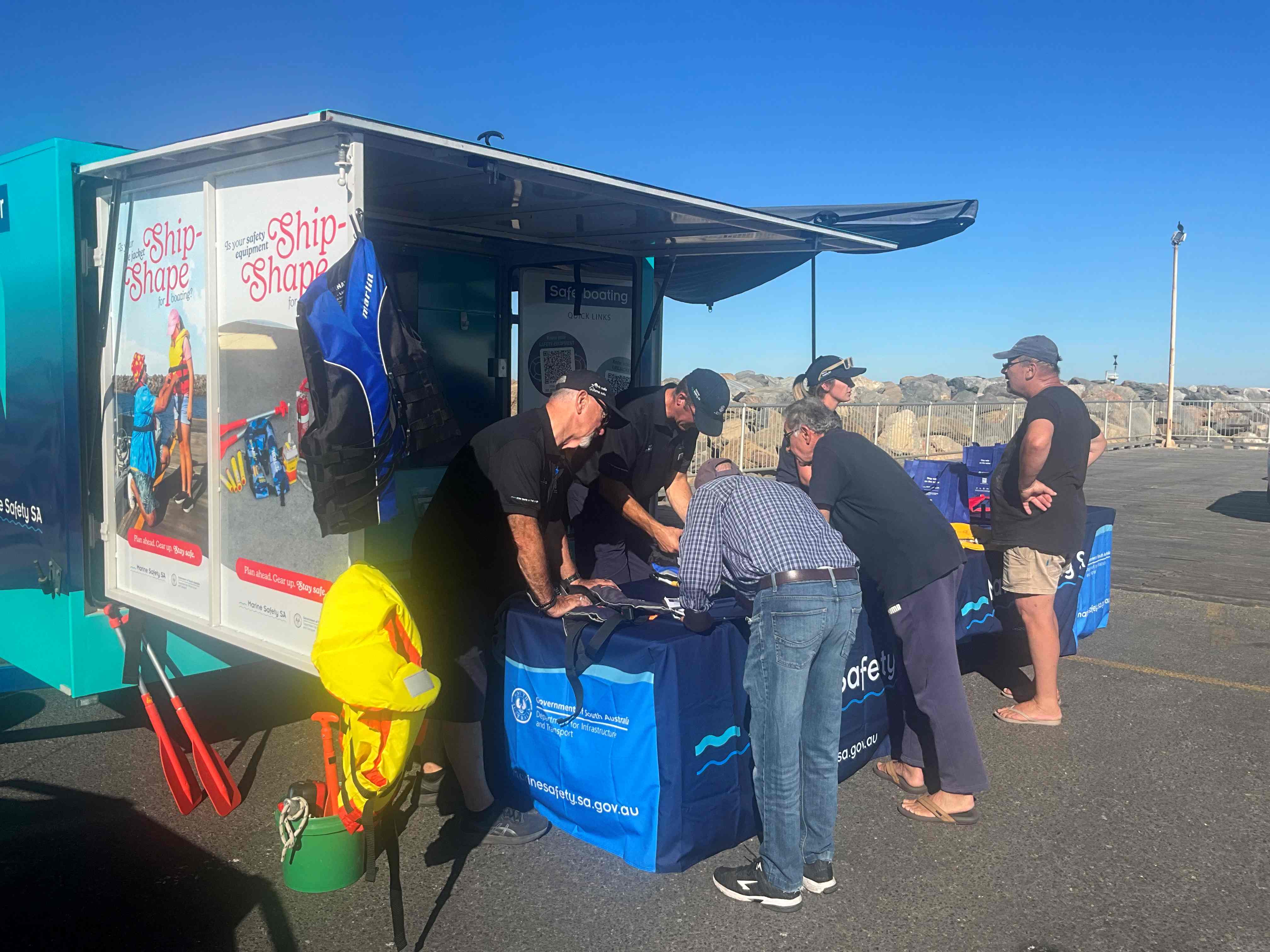
Photo (above): Marine Safety Educational trailer conducting Stay Afloat lifejacket clinics
Marine Safety SA has been busy travelling around the State conducting our Stay Afloat lifejacket clinics.
As we know, lifejackets are the most important piece of safety equipment when boating.
Over the last 20 years, boating related incidents were the second leading cause of drowning deaths in South Australia. Only one person who lost their life was wearing a lifejacket.
Our Stay Afloat lifejacket clinics share boating safety information to help boaters to:
- learn how to wear and maintain their lifejacket
- know what safety gear they need
- understand emergency communications
- ask any other boating safety questions.
Visit us when we are near you!
- Friday 18 April - Renmark boat ramp (Patey Drive)
- Saturday 19 April - Barmera boat ramp (Lakeside Drive)
- Thursday 24 April - Wallaroo boat ramp
- Saturday 26 to 27 April - Goolwa Wharf (SA Wooden Boat Festival)
Find more information and dates for upcoming Stay Afloat lifejacket clinics.
We look forward to seeing you there.
Holidays
Get prepared for your Easter long weekend boating adventure
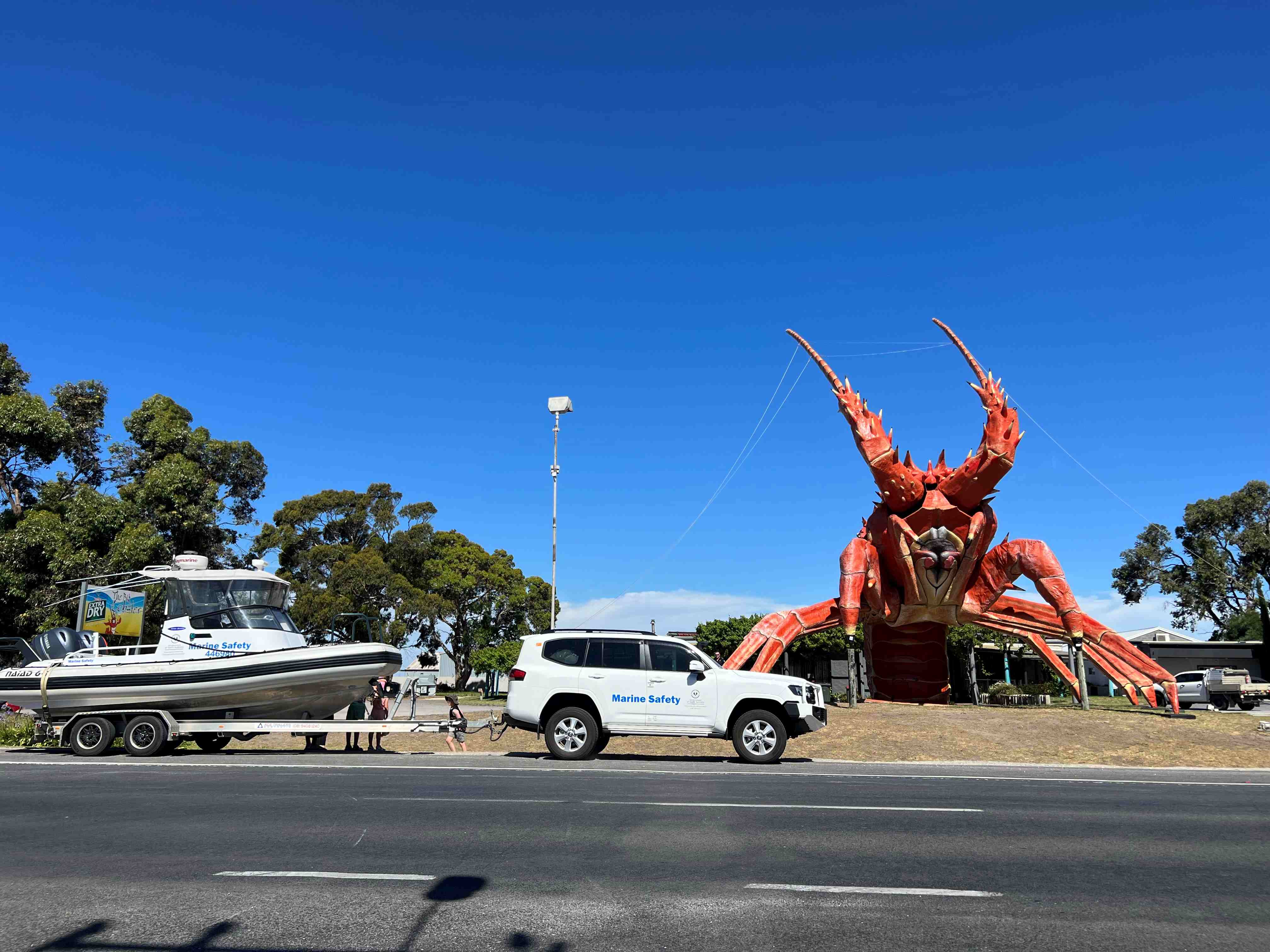 Photo (above): Our Marine Safety SA crew visiting an iconic landmark
Photo (above): Our Marine Safety SA crew visiting an iconic landmark
Easter is always a busy time on the water.
Before heading out make sure you:
- keep your crew safe with correct and good-condition safety gear
- know how to keep others safe by brushing up on the boating rules.
Last Easter the team completed 387 vessel checks, with 35% of vessels found to be non-compliant.
We want to reduce the non-compliance rate this Easter. If you see our team on the water, don’t hesitate to ask them any boating safety questions. They are there to help! Plus, grab some free Marine Safety SA educational stickers to keep your boating safety knowledge sharp.
Our Marine Safety Officers often patrol coastal waters and the River Murray. They are watching everything from vessel condition and safety gear to boat ramp use and on water behaviours.
When you’re out on the water, remember that there is a 4-knot speed limit within:
- 30 metres of other vessels
- 50 metres of people in the water
- 50 metres of kayaks, canoes and all unpowered vessels.
During holiday periods, including school holidays, our waterways get busier. Remember to operate with extra caution around others – let’s make it a great weekend on the water!
Events
Offshore Superboat Championships
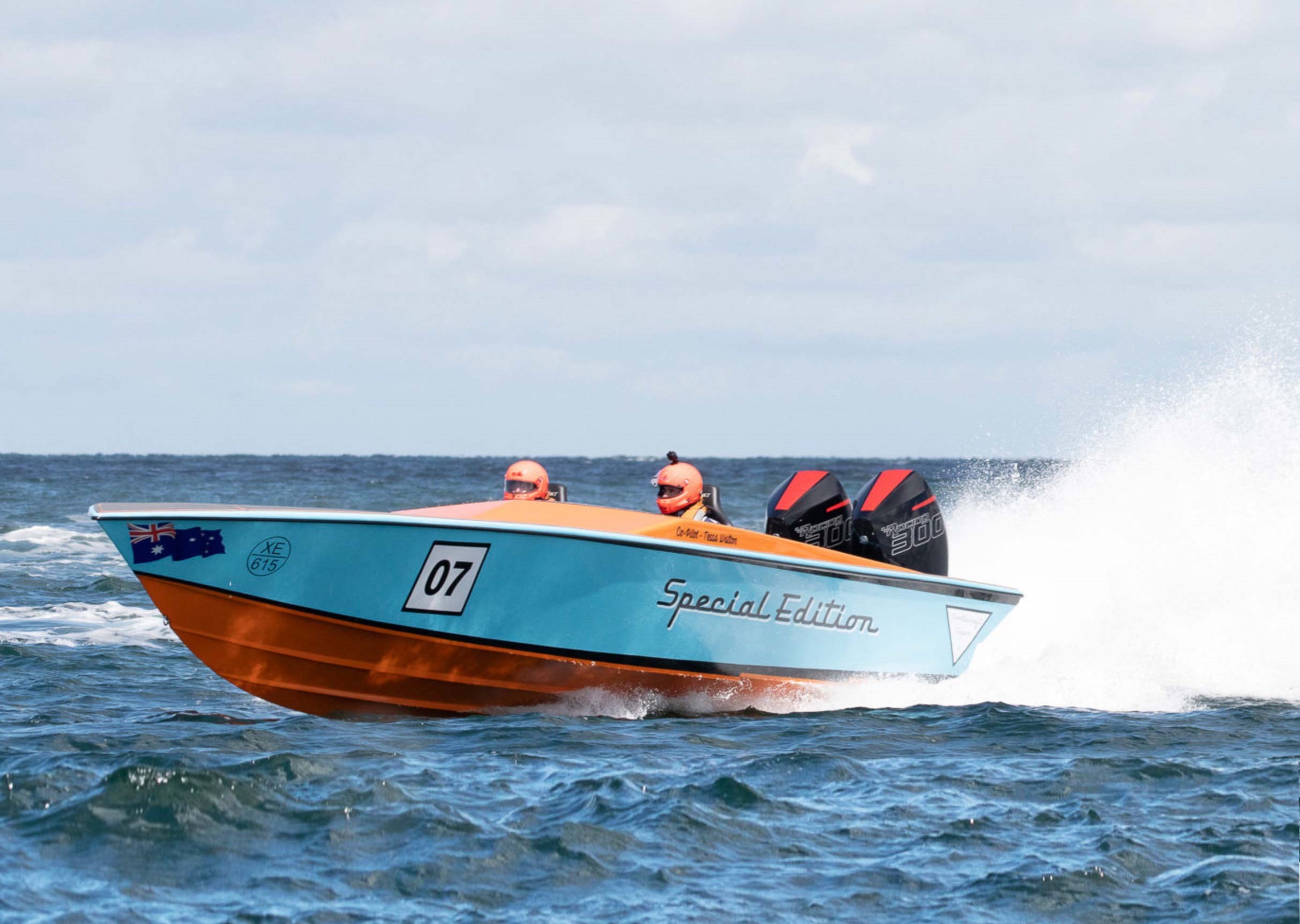
Photo (above): Please take care with superboats out on the water
The Offshore Superboat Championship will be coming to Adelaide from Friday, 11 April to Sunday, 13 April.
Temporary lane closures will be in place at North Haven boat ramp to facilitate this event, between 9am and 4pm each day.
You can still launch and retrieve vessels but please plan ahead, allow extra time and follow directions onsite. Signage and traffic controllers will be in place to help manage access.
Alternative boat ramps are available at:
- Outer Harbor (Bourne Jones Rd)
- Largs North (Snowden Beach, George Robertson Dr)
- Garden Island
- West Beach (Barcoo Rd)
A temporary exclusion zone for vessels and swimmers will also be in place from 10am to 3pm on Saturday and Sunday. Boaties and swimmers are advised to stay 200m from the marked event course.
For more info on ramp restrictions, visit Cruising Yacht Club of South Australia. For event details, check out the Offshore Superboat Championship website.
South East Field Day (Lucindale)
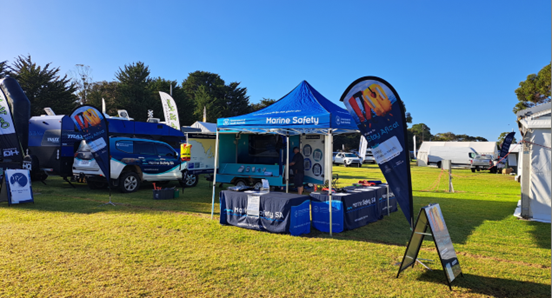
Photos (above): The Marine Safety SA team at the Lucindale Field Day
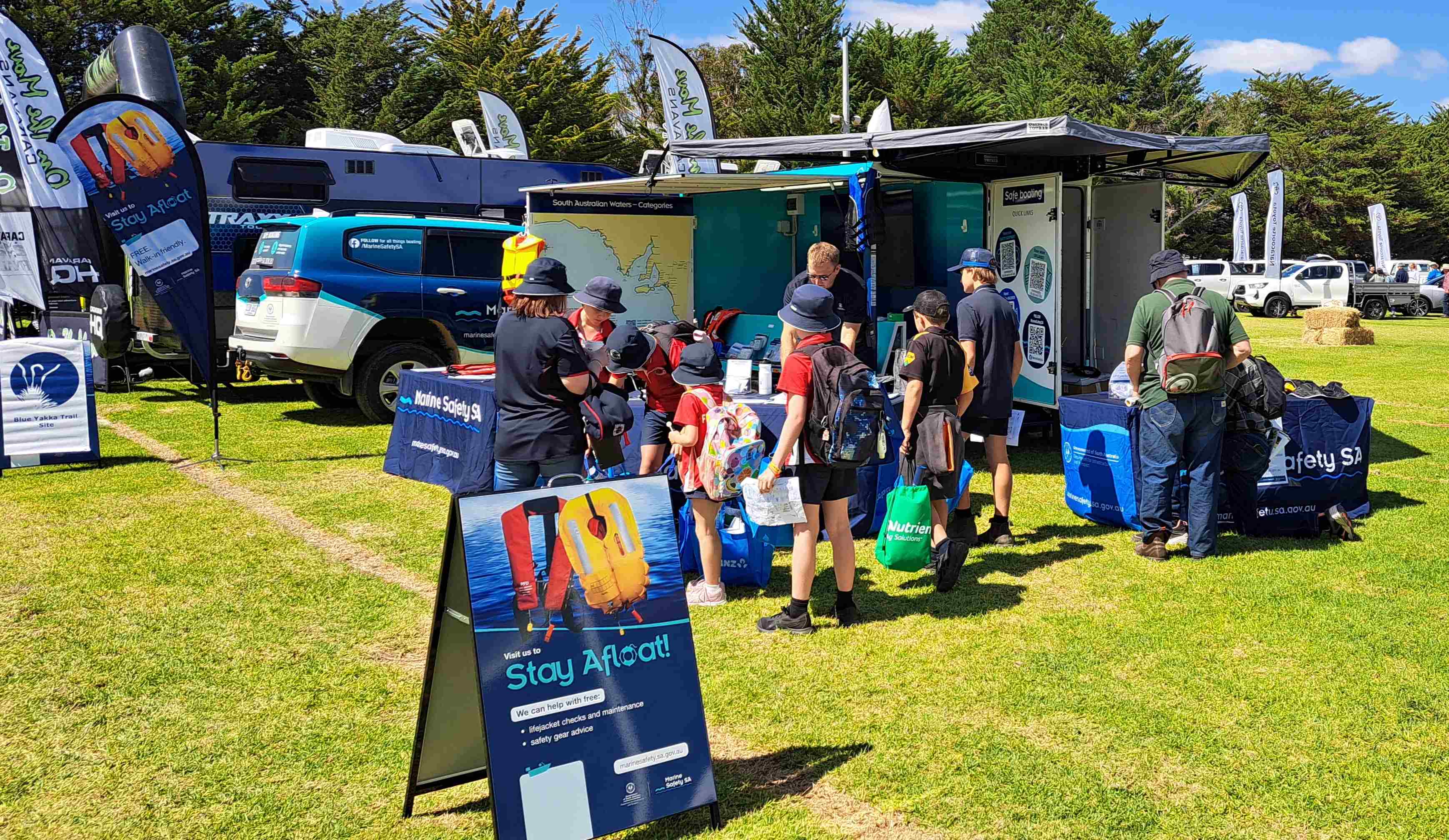
Photos (above): Participants of the Blue Yakka trail receiving their Marine Safety SA sports drink bottles
Our Marine Safety SA team attend events throughout the year to raise awareness of boating safety and share helpful tips with boaters.
The team had a great time talking to over 500 people at the South-East Field Days in Lucindale – and gave away an automatic inflatable lifejacket to one lucky Marine Safety SA newsletter subscriber!
The team were also a part of the Blue Yakka children’s trail, where children picked up their very own Marine Safety SA sports drink bottle. The team estimates they gave away 400 drink bottles across the two days.
At the Field Day, the team also conducted four Stay Afloat lifejacket clinics. It was great to see so many involved and wanting to learn more about the different types of lifejackets, and how to clean, size and fit their lifejackets. Some lifejacket replacement parts were provided free of charge – we love being able to help everyone safely set out on the water.
Find more information about and dates for upcoming Stay Afloat lifejacket clinics.
Safety
Maintaining your vessel
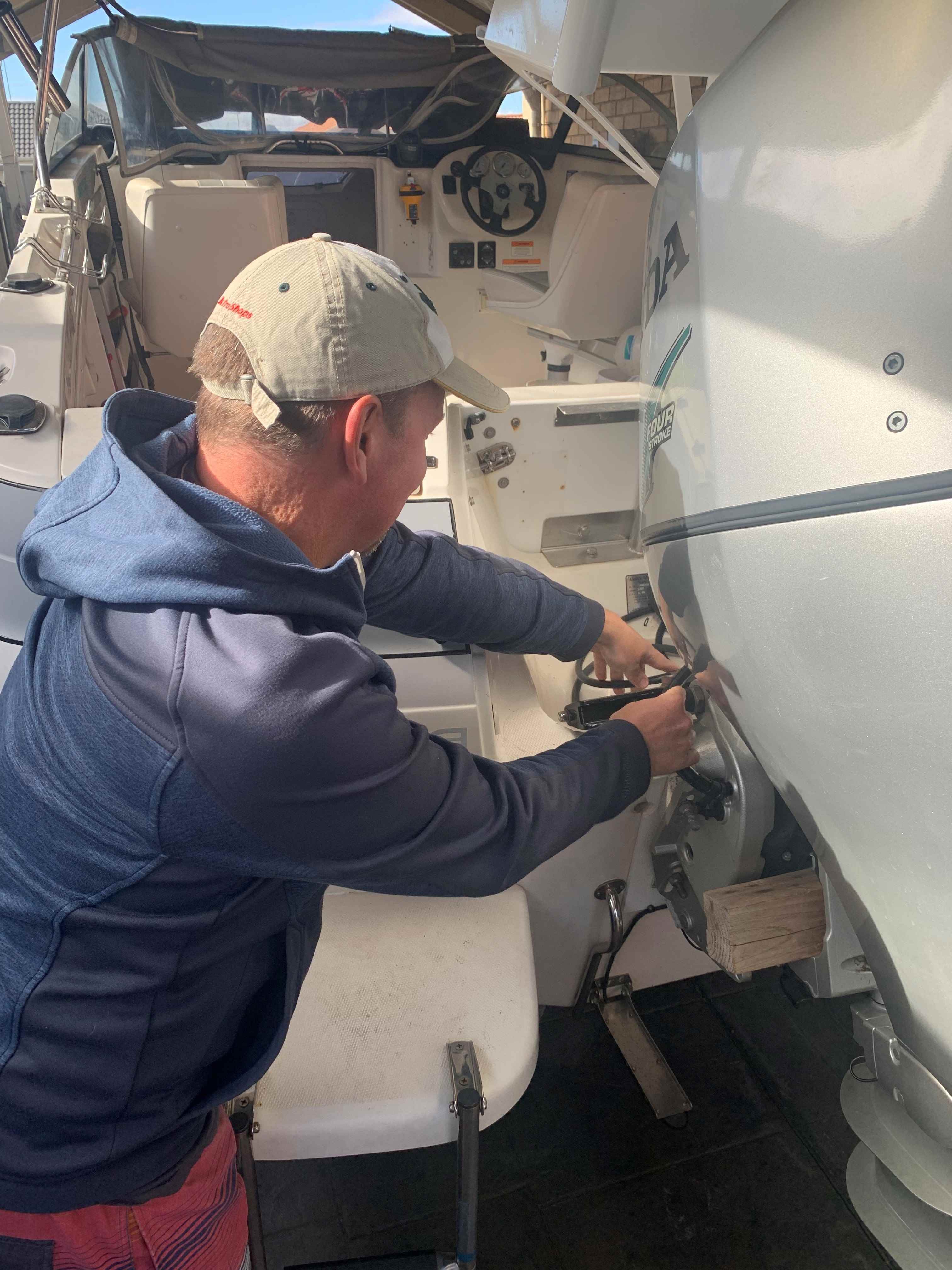
Photo (above): Make sure your vessel and equipment are in good working order
Now is an ideal time to start working through your end-of-season checklist with our recommended boat maintenance schedule.
The major causes of breakdown for powered vessels are engine failure, fuel shortage or contamination, mechanical failure and battery failure.
Before you go on the water, make sure your vessel and equipment are in good working order. If anything needs fixing or replacing, do it before you go.
It is recommended that you learn how to:
- change the filter and primer bowl
- clean and change spark plugs
- check spark plugs are sparking
- check and replace fuses
- change the propellor
- check the battery.
Reviewing these few simple things on your vessels before you head out could save you from getting into trouble. If you ever have concerns about your engine it is recommended to have it fully serviced in line with the manufacturer’s recommendations.
Keeping safe in autumn and winter
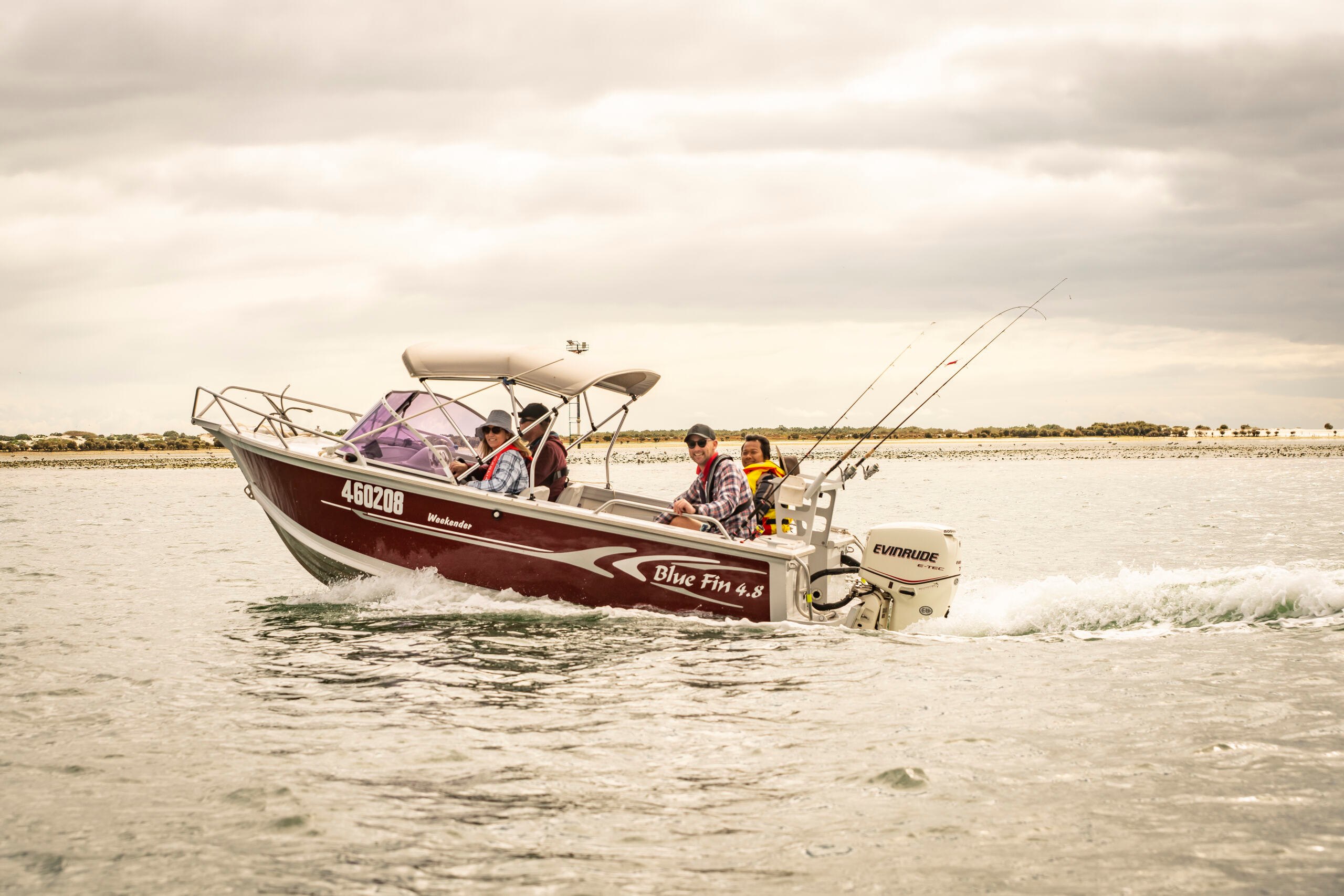 Photo (above): Stay safe on the water this winter, when heading out, know which lifejacket you need
Photo (above): Stay safe on the water this winter, when heading out, know which lifejacket you need
As we near the end of the boating season and with summer already behind us, it is important to remember that cooler weather also means colder waters.
Some parts of the State are already seeing water temperatures as low as 14° celsius. The risk of drowning increases by five when water temperature is under 15° Celsius.
Follow the tips below to be safe on the water this winter.
Know your lifejacket:
- Know what lifejacket you need.
- Wear your lifejacket.
Plan your means of contact:
- Log on with your local Sea Rescue or Coast Guard.
- Register your Emergency Positioning Indicating Radio Beacon (EPIRB) with the Australian Maritime Safety Authority
Check the forecast:
- Refer to Bureau of Meteorology to check up-coming weather.
- Know your vessels capabilities.
- If in doubt, don’t go out!
Check, clean, dry – protect our abalone & marine environments
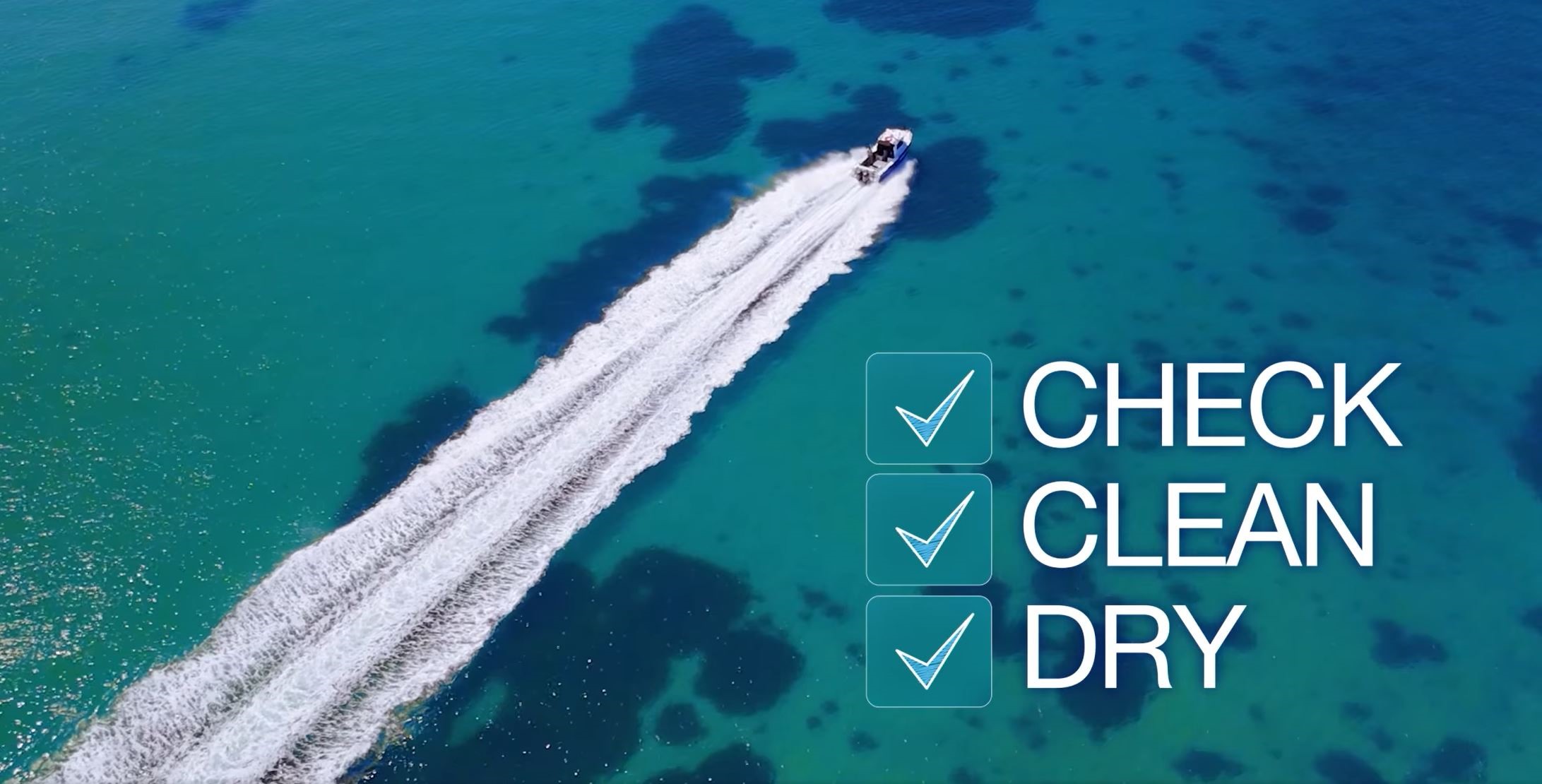
Photo (above): Check, clean and dry your vessel
In response to the abalone viral ganglioneuritis (AVG) outbreak in our State, the Department of Primary Industries and Regions (PIRSA) has:
- implemented restrictions on taking abalone between the Murray Mouth to the Victorian border
- urging water users to Check, Clean and Dry all marine equipment to stop the spread.
Taking of any abalone (commercial or recreational) in waters from the Murray Mouth to the Victorian border is prohibited. This restriction aims to provide depleted stocks an opportunity to rebuild as quickly as possible.
To help prevent any further spread, water users must follow the following biosecurity steps:
- Check all vessels and fishing, diving and surfing equipment. Remove any water, sand or seaweed.
- Clean boats at home or at a commercial car wash. Wash wetsuits, fishing and diving equipment with detergent and fresh water. Anything that has touched the seabed, such as anchors, must be decontaminated.
- Dry all boating, fishing and diving equipment completely, preferably in the sun, before heading out into the water again.
For more information, please visit the PIRSA website.
Heightened Risk
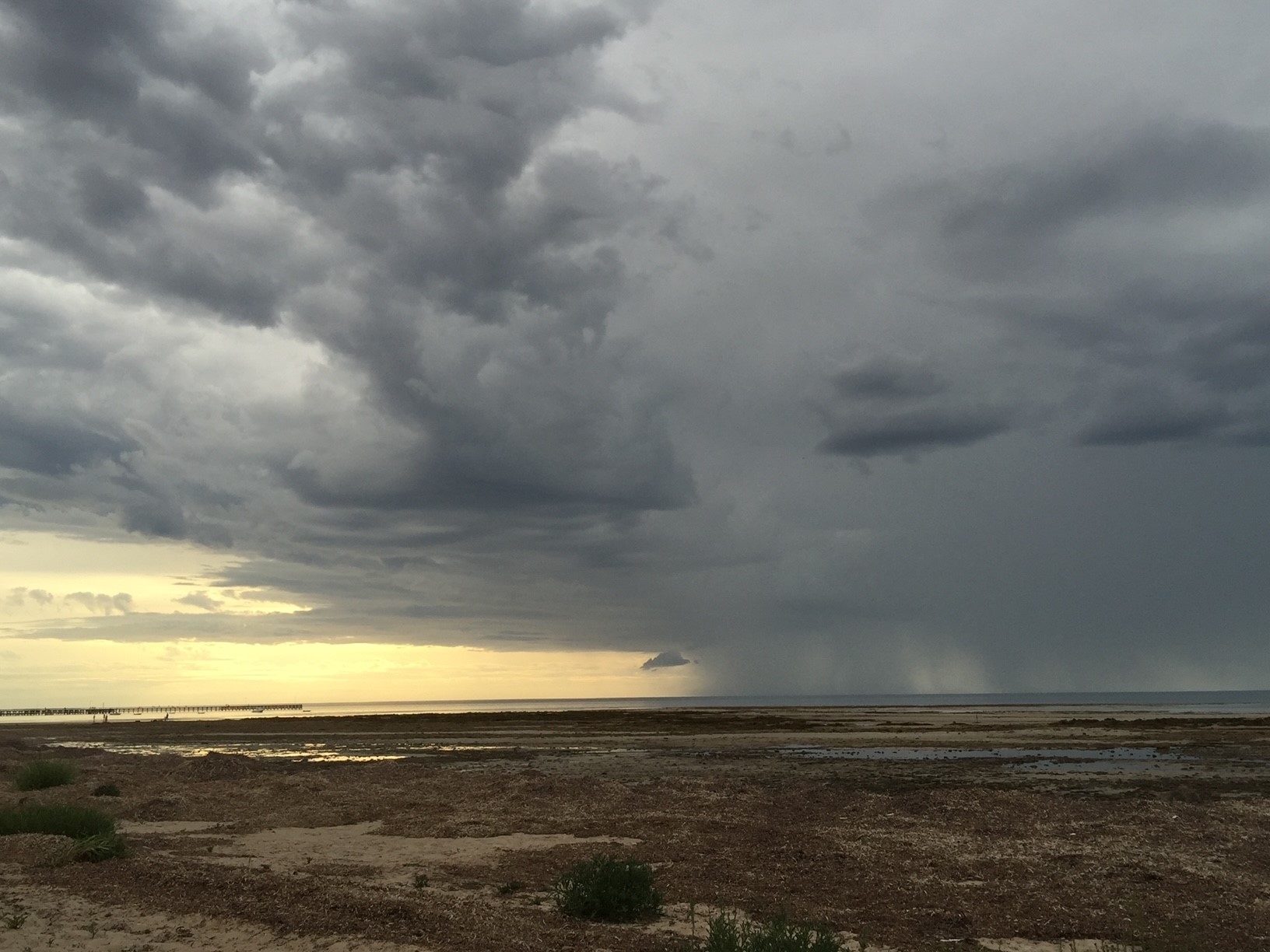
Photo above: Weather coming in at Moonta Bay.
Did you know that heightened risk occurs when there is a restriction on the ability to anticipate an event or when a hazard cannot be seen?
However heightened risk is not only limited to when there is significant likelihood that the vessel may capsize, or the vessel occupants may fall overboard.
Circumstances of heightened risk may occur:
- when operating alone
- when operating and only accompanied by a child, or children, who is 12 years old or younger
- when operating after sunset or before sunrise
- when the boat is disabled
- when crossing an ocean bar
- at times of restricted visibility
- when in an area subject to a gale, storm force, hurricane-force wind, severe thunderstorm or severe weather warning issued by the Bureau of Meteorology.
Operating at times of heightened risk increase your lifejacket requirements.
To know exactly what type of lifejacket you and your passengers need, and when you must where it, use our quick and easy lifejacket checker tool.
Video of the month
Rippers Murray Bridge
Our Marine Safety SA team recently attended the final session of the Surf Life Saving SA Rippers program held at Murray Bridge.
Rippers is a junior activities program based on the River Murray. The program is specially designed for children aged 5-12 and is a great way for kids to learn essential water safety skills.
Our team members provided valuable boating safety tips through a range of fun and engaging activities with the kids.
The interactive sessions focused on key areas of knowing the weather, preparing before going boating and wearing a lifejacket. Some of the kids also had the experience of demonstrating how an inflatable lifejacket inflates and what to expect when wearing one – watch above!
It is always important to remember to find, fit and wear a suitable lifejacket.


